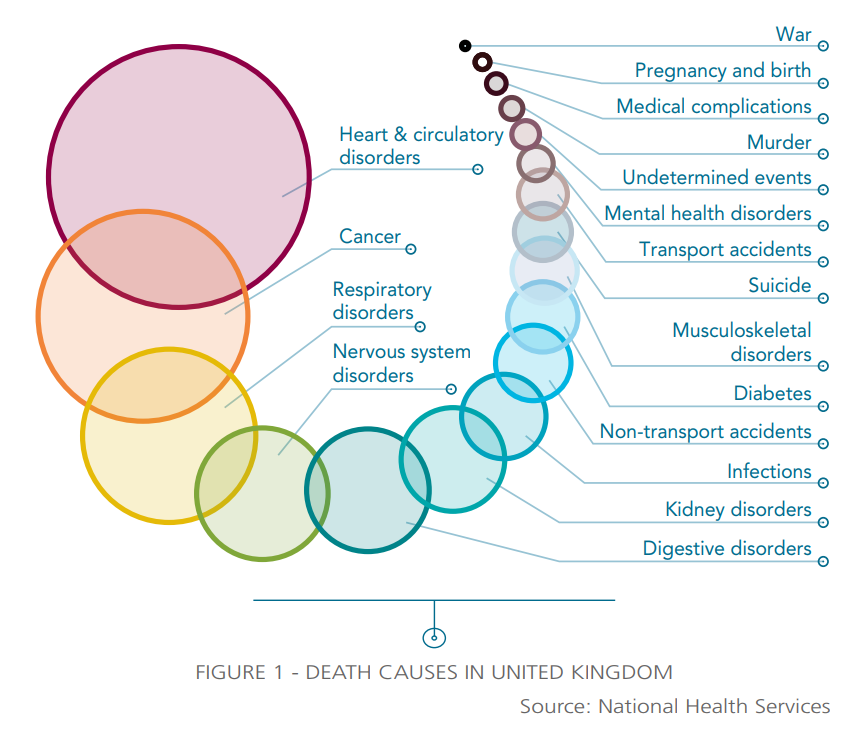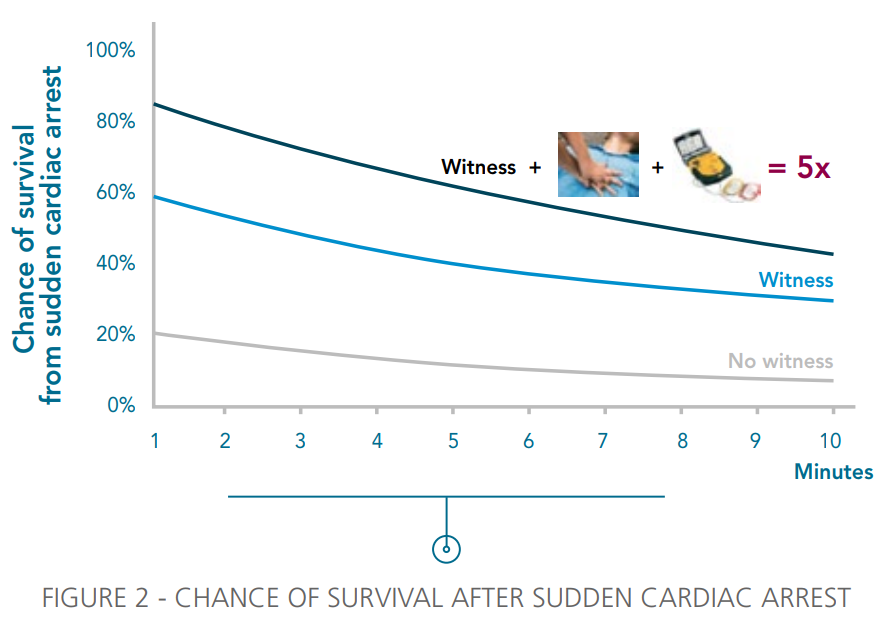- FR
- EN
Product Development In Life (Re) Insurance - Innovations Which Save Lives
When contemplating scientific innovation, SCOR considers two main questions: what is the main purpose that we serve? What role do we wish to play?
25 avril 2019

Historically, the life and health insurance business has mostly relied on two tools - mortality tables, which provide the basis for pricing new policies, and death certificates, which are the proof that a claim must be paid. However, beyond the mechanics, it is important to remember that for each claim that occurs, a life is lost. This is the very nature of the life and health insurance business and by apprehending this notion, the industry can be motivated to create new products and act beyond pure risk taking. The mortality business, more specifically the mortality related to the human heart, powerfully crystallizes all of the elements that are typically embedded into the innovation concept.
The issue at heart
Cardiac arrest is the main cause of death in the majority of countries – actually, in all lower middle, higher middle- and upper-income countries. Every year, 600000 people suffer from sudden heart stoppages in the United States alone. In lower income countries, heart-related conditions rank third as cause of death, however they are the largest noncommunicable cause of death (i.e. excluding infections and nutrition issues). As an aside, cardiac arrest should not be mistaken with a heart attack, as it refers to “the sudden, unexpected loss of heart function, breathing and consciousness [which] usually results from an electrical disturbance in [the] heart that disrupts its pumping action, stopping blood flow to the rest of [the] body”. Typical consequences, in case of survival, are most often neurological.
Surviving Cardiac Arrest
For every minute that passes without intervention, a cardiac arrest victim’s survival chance drops by 10%. Figure 2 illustrates the various scenarios of a cardiac arrest occurrence and how they influence survival rates. Without a witness, the chance of survival is abysmally low; which is the biggest issue as two-thirds of cardiac arrests happen in closed spaces, such as at home or in a building. The scenario with the best survival rate is the presence of a witness, the ability to get trained help very quickly, and access to a defibrillator.
This combination multiplies by five the survival rate of cardiac arrest victims.
iBeat, the heart monitoring smartwatch
Based in San Francisco, iBeat is a start-up which has developed a heart monitoring smartwatch, capable of saving lives. Equipped with medical grade sensors, the watch accurately tracks heart rates and blood pressure changes and can detect oncoming cardiac arrests. If the wearer’s heart is in danger of stopping, iBeat will immediately alert the emergency contacts listed on the device and the emergency services. The user can also trigger the watch, in the event of a fall, to connect a dispatch team, which will send immediate assistance.
The start-up also developed the Heart Hero Network smartphone app in the United States. The app has been installed by 1.4 million people who by joining the community have declared themselves ready and able to volunteer within the network - most of this population are trained professionals (firefighters, police agents, citizens, etc.). They will be alerted by the app in the event of a cardiac arrest in close vicinity. If the circumstances allow for this, the watch will alert two volunteers - one who could perform manual resuscitation and the second would be informed of the closest publicly available defibrillator and join the victim with the device.
SCOR & iBeat collaboration
The collaboration between iBeat and SCOR was made possible by a shared vision and mission - SCOR strives to contribute to the welfare and resilience of society, while iBeat’s mission is to “empower people to be fearless, explore and live longer lives”, and their vision is to “make the world feel safer by giving people the fastest access to care in an emergency”.
The iBeat product strives to lower mortality rates linked to cardiac arrest. Together with the moral considerations regarding mortality, SCOR joins iBeat in this endeavor as claims caused by circulatory and heart related diseases represent a yearly cost of roughly one billion euros. The alignment of economic incentives thus matches the alignment of values between both companies.
The partnership between SCOR and iBeat has two components:
- investment, by buying equity into the company as part of their financing round;
- a more classical commercial partnership, with the intent to subsidize the cost of purchasing the device and of subscription to the service for certain portions of the SCOR portfolio, particularly in the US.
SCOR Life & Health Ventures
In 2018 SCOR created its own venture investment arms. On the Life & Health side, the focus of is purely on start-up companies that can help enrich SCOR’s value proposition towards its customers (i.e. Life & Health insurers).
The goals of the venture, in regard to iBeat in particular and innovation in general, are to:
- Enrich the reinsurance value proposition;
- Save lives & improve the overall mortality experience;
- Increase the insurability of people with health risks.
About the Author
Barth is SCOR Global Life’s Head of Client Solutions. He oversees the provision of health assessment services (medical underwriting – both traditional and automated), the deployment of solutions that will improve the health of both new and in-force policyholders, and the “SCOR Life and Health Ventures” arm, established to create and invest in a community of trusted partners to enhance the value proposition of SCOR Global Life. Barth’s previous roles with SCOR included General Manager of SCOR Global Life Canada, and Global Head of Strategy & Development for Life. Prior to joining SCOR, Barth was a Vice-President with a global Venture Capital fund, originating, executing and managing investments in the US and in Europe.

